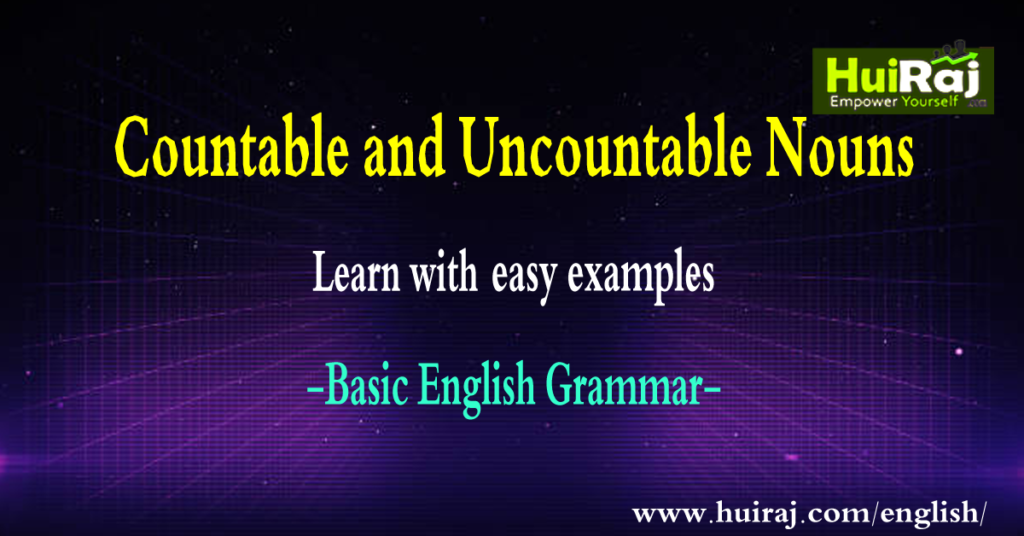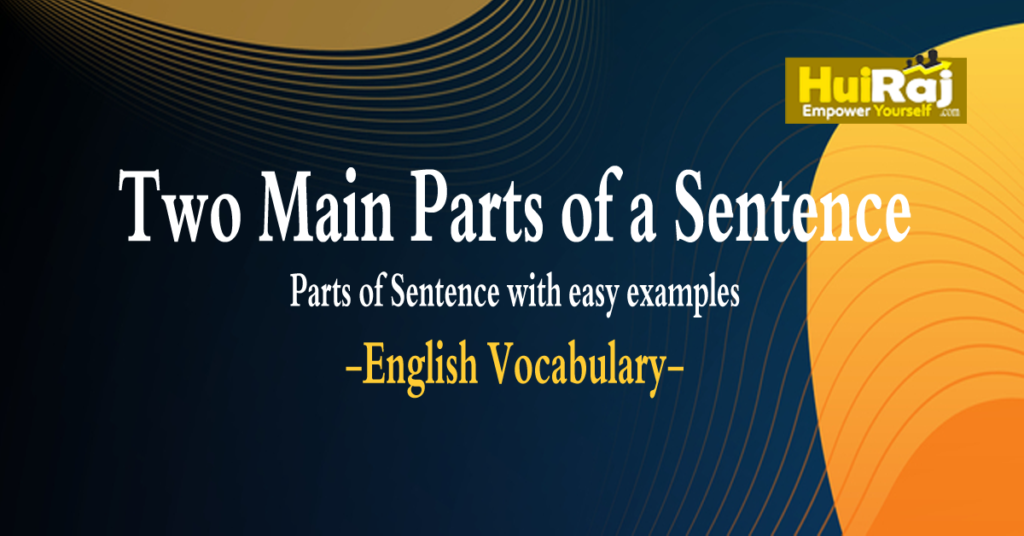Predicate Phrases
In this step, we will study in detail about Predicate Part or Predicate Phrase.
Study the following sentence:
(i) Mita laughed.
(ii Madhu caught the ball.
We have already seen that a sentence has two main parts. The subject and the predicate.
In each of the above sentences, the first word is the subject(Mita) and the remaining words of the sentences belong to the predicate part(Laught and caught the ball).
Let us give our main focus on the predicate part/ phrase in the chapter.
In the above examples ‘laughed’ is the verb in the (i) sentence and ‘caught’ is the verb in the (ii) sentence. So the verb is the most important element in a predicate phrase. But in the (ii) sentence above, the verb goes with the noun phrase ‘the ball’ which is the compulsory, item of the sentence.
Let us examine the sentence. Madhu caught _________(what ?).This blank space should be filled with a suitable noun/noun phrase. So the noun phrase is an object here and the verb ‘caught’ is a transitive verb in nature. In sentence (i) the verb ‘laughed’ in the predicate phrase is intransitive in nature.
Now we come to know that a predicate can be formed by using the verb alone as in sentence (i) and the verb + other element as in sentence(ii) . This depends on the nature of the verb in the predicate phrase.
Look at the following example:
(iii) He bought a ball pen at a shop yesterday.
In the predicate (phrase), the verb may be followed by one or more noun phrase(s) or adverb phrases (s) or a combination of these phrases. This depends on the meaning of the verb in the predicate.
Study the following examples:
(iv) The girl laughed.
(v) The girl looks nice.
(vi) The girl saw a ghost.
(vii) The ghost gave her a gift.
In sentence (iv) above, ‘laughed’ is the verb in the predicate. It is a compulsory item which cannot be left out. We may use other phrases after the verb to add extra information/ meaning to the sentence.
Complement
In sentence (v), the verb ‘looks’ goes with an adjective phrase ‘nice’ which is also the compulsory element of the predicate phrase. It is the complement in function. Both the sentences (iv and V) cannot be converted to passive voice and the verbs are intransitive verbs.
Objects
Now notice that in the sentence (vi), the verb ‘saw’ takes the noun phrase a ghost after it. In the above sentence (vii), the verb ‘gave’ takes two noun phrases ‘her’ and ‘a gift’ after it. Without these noun phrases, the sentences will not be grammatical and acceptable. These elements are necessary items for the predicate. They are called objects and the verbs in these sentences are known as transitive verbs.
Direct Object
All these transitive verbs are not of the same type. Some of them take only one object as in the above sentence (vi). That is known as the Direct Object and the verb is the mono-transitive verb.
Indirect Object
Some others take two objects as in like in the above sentence (vii). The first object is usually known as the Indirect Object and the second is known as the Direct Object and the verb in the sentence (vii) is knowns as a di-transitive verb.
We shall now divide basic sentences in English broadly into two categories:
- Intransitive (predicate phrase) patterns and
- Transitive (predicate phrase) patterns:
Look at the following diagram:
There are many other possibilities but we shall focus on these five basic patterns:
Exercise-1
1. Underline the verb in each of the following sentences and say whether it is transitive or intransitive.
- My brother sent me a long letter.
- The teacher asked my friend some intelligent questions.
- My mother gave the teacher a cup of tea.
- He went up the hill.
- She does not smile.
- The meeting broke off.
- Stand up on the bench.
- What did you tell him?
- The old man is dying.
- Sincere efforts brought the students, success.
Exercise-2
Read the sentences in Exercise-1 and Underline the Noun Phrases used in each predicate part. Write their formal names. The first one has been done for you.
1. My brother sent me a long letter
- Noun Phrase- Me, (Indirect object)
- NounPhrase- a long letter. (Direct Object)
See the book.
Intransitive Verb Patterns.
Adjunct
a) Verb Group + (Adjunct)
The man died (yesterday)
The bracketed word in the sentence is not absolutely necessary. We can put a full stop before it. Without it, the sentence becomes grammatical and meaningful. So the adverb ‘yesterday’ functions in the sentence as an adjunct.
Complement
b) (i) verb Group + complement + (adjunct)
- Mira is a nurse (Noun Phrase)
- She is kind(Adjective Phrase).
- She is in that hospital (Prepositional Phrase).
- She is there (Adverb Phrase).
In these sentences, we cannot put a full stop after the verb ‘is’.
The words/phrases that follow are a noun phrase, an adjective phrase, a prepositional phrase, or an adverb phrase. They are absolutely necessary and are called complements in function.
‘Is’ is one form of the ‘be’ verb just like ‘am’, ‘are’, ‘was’, ‘were’, ‘being’, ‘been’ and ‘be’. If such a verb becomes the main/full/principal verb of a sentence, it must take a complement after it. All the four phrase Phrases (Adjective Phrase, adverb Phrase and Prepositional Phrase) are possible after the verb ‘be’ when it functions as a full verb. They are all complements in functions.
(ii) Similarly, ‘become, appear, seem or, look‘ can take either a noun phrase or an adjective phrase as its complement.
For Example:
1 He became a teacher/ mad.
2. He appears a fool/ foolish
3. He Seems/ looks like a grave man/ grave. (see the book)
(iii) Verbs like taste, smell, feel etc take an adjective phrase or a prepositional phrase beginning with like/as their Complement.
- The curry tastes salty.
- It smells nice.
- I feel cold.
(iv) Verbs like ‘have’, ‘cost’, resemble’, ‘fit’, ‘suit’, weight’ etc take noun phrases as their complements. They usually do not take adjective phrases, adverb phrases, or prepositional phrases as complements. In an additional point of view,1. these noun phrases function as complements.
- He has a car.
- A car costs a lot of money.
- He resembles his father.
- The colour suits him.
- The car weighs a ton.
(v) Verbs like ‘behave’ and ‘pride’ take self-type pronouns as complements.
- He didn’t behave himself at the party.
- She prides herself on her appearance.
(vi) Verbs like ‘lie’ and ‘sneak’ take adverb phrases and prepositional phrases as complements.
- The baby lay in the cradle.
- The thief sneaked into the house.
Transitive Verb Patterns
(a) Verb Group + Direct Object + (Adjunct)
- I am studying grammar (now).
- She was writing a letter (at that time).
(b) Verb Group + Indirect object + Direct object + (Adjunct)
- Our teacher is teaching us grammar (now).
- Sritam gave the beggar five rupees (in the temple).
(C.) Verb Group + Direct object + Complement + (Adjunct)
- The driver kept the car in the garage (yesterday).
- The peon put the file on the table.
Exercise-3
Separate the subject from the predicate in each of the following sentences. Underline the subject (group):
- Vyas and Valmiki were great poets.
- The United States is the richest country in the world,
- Home they brought her warrior dead,
- Stand up on the bench,
- Nothing but music gives him pleasure.
- What brings you here?
- What did you tell him?
- The girl in blue frock standing at the bus-stop is my sister,
- None but the brave deserves the fair.
- Smoking cigarettes is injurious to health.
- Who broke the chair?
- Who did you meet at the station yesterday?
- There are forty students in our class.
- It is a hot day.
Exercise-4
Underline the noun phrases in the following sentence. How do they function in the sentences subject, direct object or indirect object?
- Regular disturbances in my studies caused my failure.
- Sincere efforts brought the students, success.
- The teacher asked my friend some intelligent questions.
- My mother gave the teacher a cup of tea.
- Our English teacher taught our class a lesson on Basic Sentence Structure.
- The old lady sold us her house.
- The old lady sold us her house.
- Father bought a beautiful pen.
- Father bought me a beautiful pen.
- The members elected their leader.
- The students selected their monitor.
Exercise-5
Which noun phrases in the following sentences work as objects and which are complements?
- Economics is a difficult subject.
- Romeo and Juliet is a nice play.
- An honorable man never betrays his friends.
- My friend will never tell a lie.
- Hanuman carefully searched the palace.
- She gives her children expensive presents.
- My sister became a teacher.
- Everyone called him Sunny.
- They named the place Shangri-LA.
- Mr Patnaik made him a junior minister.
- The students selected Ravi their monitor.
- We call Gandhiji the father of the Nation.
Exercise-6
There are some adverbs/ adverb phrases in the following sentences. Which of them are complements?
- We should treat everybody alike.
- Go straight up to the crossroads.’
- He rejected my proposals outright.
- He drives very carefully.
- The children were playing in the garden.
- He put the key in the cupboard.
- He kept the money in his pocket.
- I began to get in a panic.
- Malaria can keep a man off work for three days.
- The dog is at the front gate.
- He was still in a state of shock.
- I am from Sambalpur.
Exercise-7
Identify the complements in the following sentences. What categories of words or phrases are they? Are they noun phrases, adjective phrase, adverb phrases, prepositional phrase or clauses?
- Her general knowledge is amazing.
- The children seemed frightened .
- That is a very difficult question.
- Rajendra Prasad became the first President of India.
- The soft music made me sleepy.
- I found the forest quite frightening.
- The letter box was in the front garden.
- It was very quiet on the sea shore.
- Mira seemed to be asleep.
- He fell asleep at the table.
Exercise-8
Say whether the underlined words/expressions are complements or adjuncts.
(i) Mother is in the kitchen.
(ii) Mother is cooking the meal in the kitchen.
(iii) He became weak in a few days.
(iv) The man has ten acres of land in our village.
(v) The tiger killed a man in the forest.

